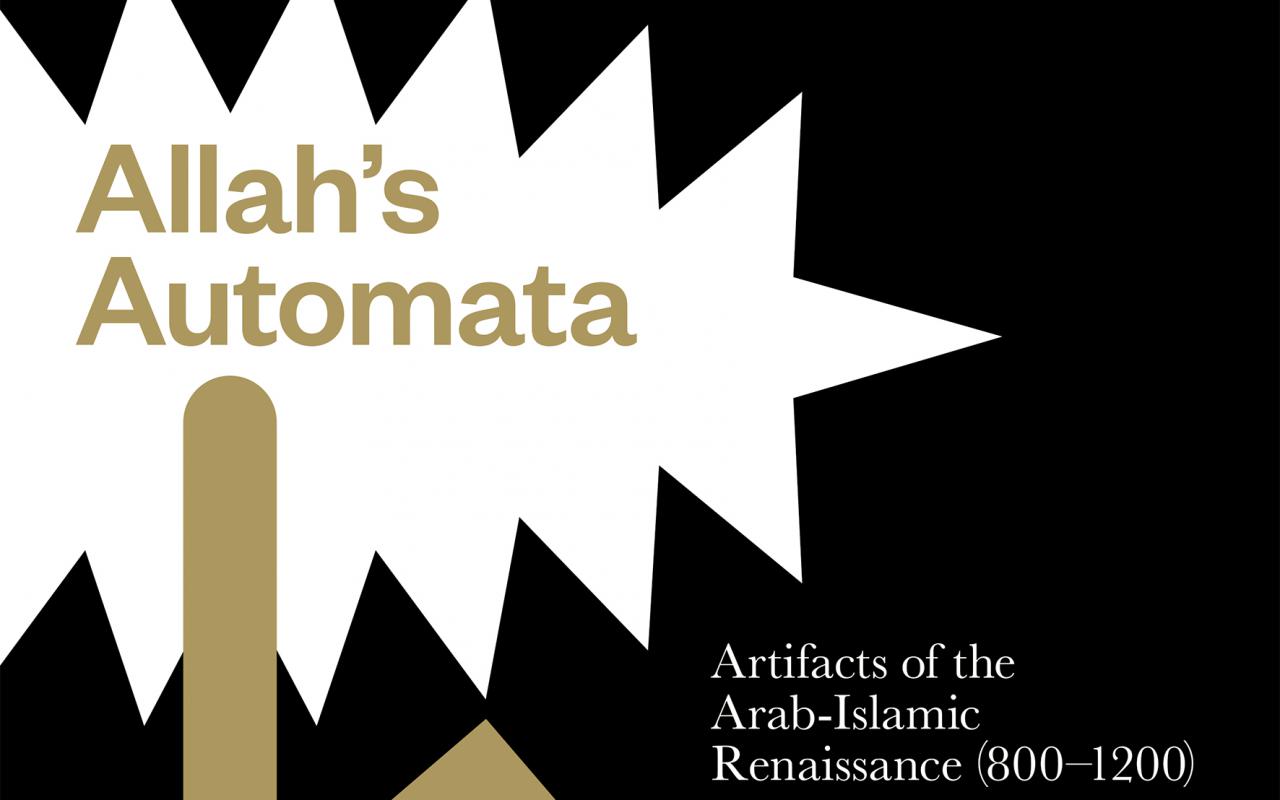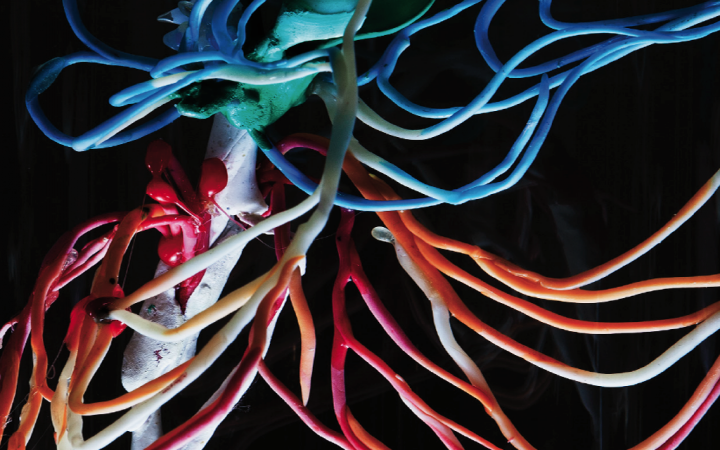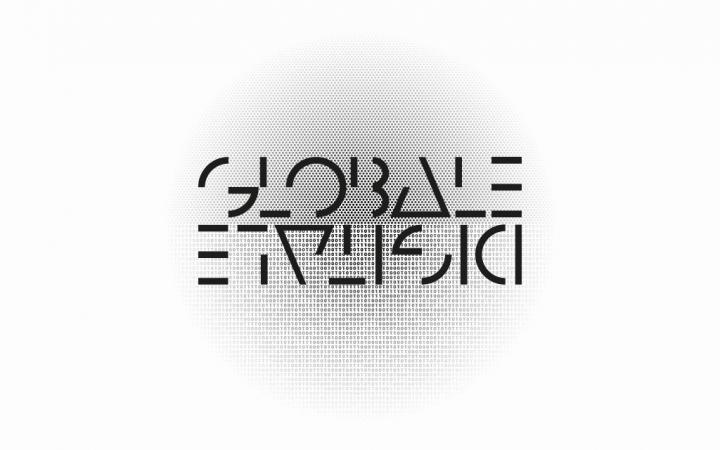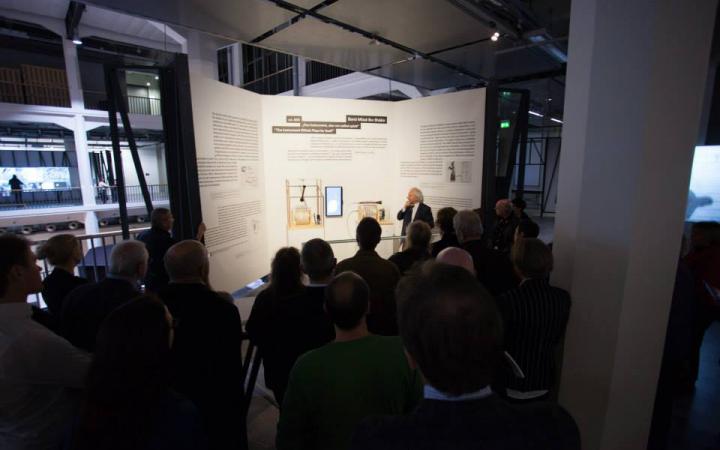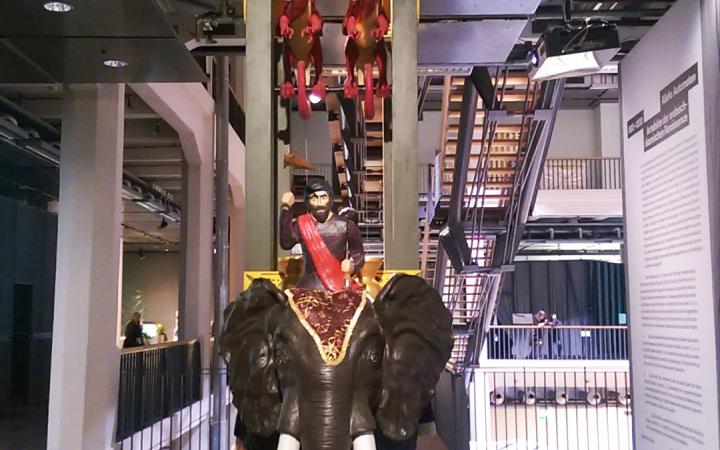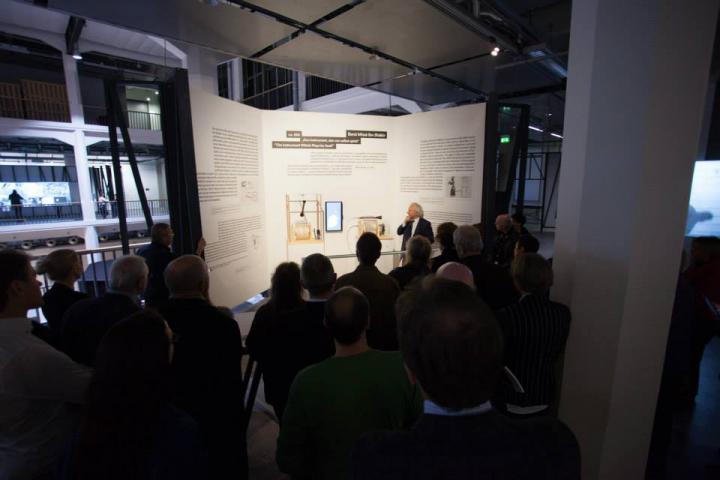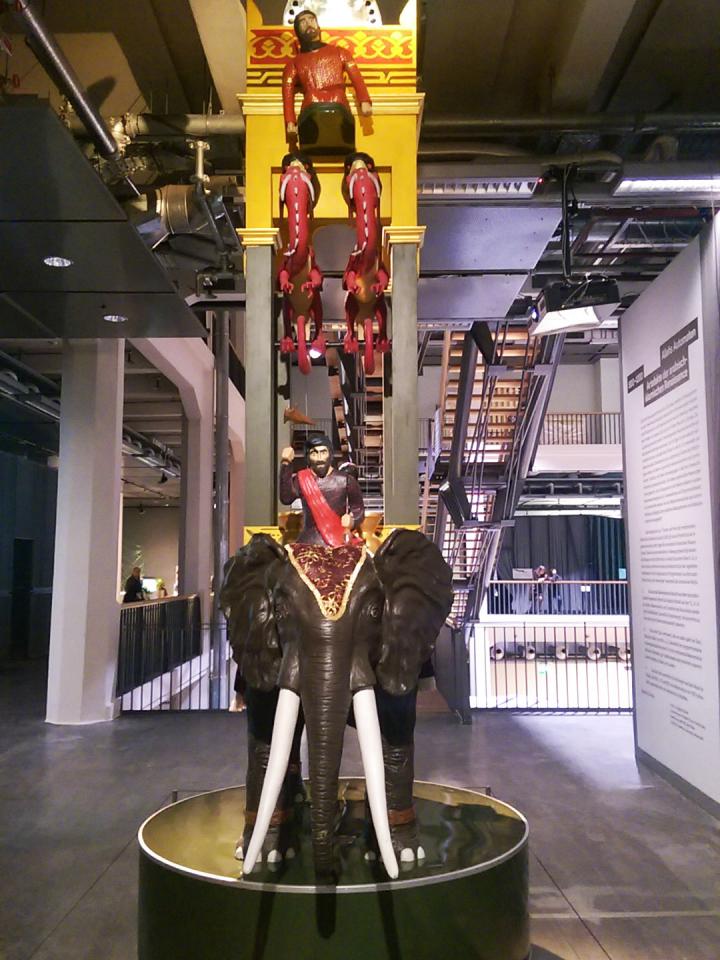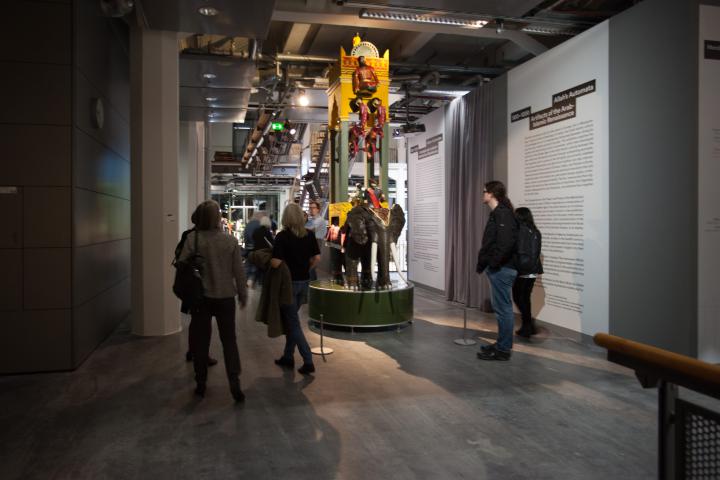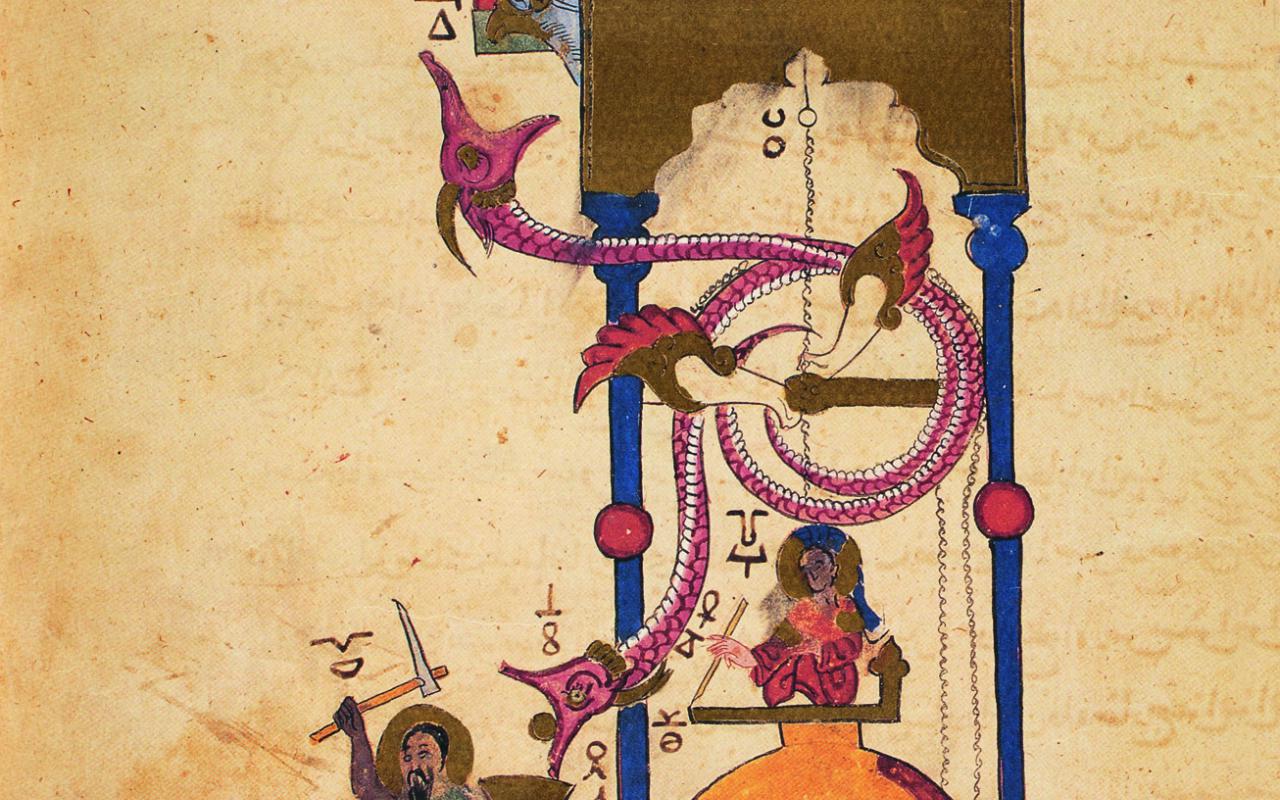
The first Renaissance did not take place in Europe, but in Mesopotamia. Arabic-Islamic culture functioned – from a media-archaeological point of view – as a mediator between classical antiquity and the early Modern age in Europe. As part of the exhibiton »Exo-Evolution« and on the basis of outstanding examples, the exhibition explores the rich and fascinating world of the automata that were developed and built during the golden age of the Arabic-Islamic cultures, the period from the early 9th to the 13th century.
The machines to glorify God Almighty draw mainly on the traditions of Greek Alexandria and Byzantium. They introduced spectacular innovations, which did not emerge in Europe until the Modern era: permanent energy supply, universalism, and programmability. For the first time, four of the master manuscripts of automata construction from Baghdad, Northern Mesopotamia, and Andalusia are on show together: the al-Jāmic bayn al-cilm wa-’l-camal an-nāfic fī ṣinācat al-ḥiyal [Kompendium on the Theory and Practice of the Mechanical Arts] by Ibn al-Razzāz al-Jazarī (1206 CE), the Kitāb al-asrār fī natāʾij al-afkār [The Book of Secrets in the Results of Ideas] by the Andalusian engineer Aḥmad ibn Khalaf al-Murādī, the Kitāb al-ḥiyal [Book of Ingenious Devices] (about 830 CE) by the Banū Mūsā ibn Shākir and the treatise al-Āla allatī tuzammir bi-nafsihā [The Instrument Which Plays by Itself] (850 CE), a masterpiece of all modern programmable music automata.
Furthermore, the exhibition shows two reconstructions of legendary artifacts: Al-Jazarī’s masterpiece among his audiovisual automata, the so-called Elephant Clock – a spectacular object for hearing and seeing time –, and the programmable music automaton by the Banū Mūsā as a functioning mechatronic model.
»Anyone who thought that robotics were an invention from the recent past should take a look at these pioneering machines of this unbelievable exhibition of automatic machines, which were designed and built in the Arabic world between 800 and 1200 A.D.«
– Daniel Birnbaum, director of the Moderna Museet Stockholm, speaking about the Allah’s Automata exhibition at the ZKM, in: Artforum International, December 2016
- Credits
- Siegfried Zielinski (Curator)
- Eckhard Fürlus (Co-Curator)
- Daniel Irrgang (Co-Curator)
- Judith Bihr (Project management)
- Exhibitions team
Ayhan Aytes and George Saliba
Exhibition architecture: Stadelmann Schmutz Wössner, Berlin / London- Organization / Institution
- ZKM | Karlsruhe
- Partners
- Biblioteca Apostolica Vaticana
- Biblioteca Medicea Laurenziana, Florenz
- Bibliothek des Karlsruher Instituts für Technologie (KIT)
- Handschriftenabteilung der Bibliotheca Apostolica Vaticana, Rom
- Humboldt-Universität zu Berlin, Universitätsbibliothek
- 1001 Inventions Limited, London
- Konya Science Center, Bursa
- Leonardo3, Mailand
- Library of Congress, Washington, D.C.
- Staatsbibliothek zu Berlin, Stiftung Preußischer Kulturbesitz, Universitäts- und Forschungsbibliothek Erfurt/Gotha
- Technische Universität Berlin, Universitätsbibliothek
- The British Library London
- Topkapı Sarayı Library, Istanbul
- Ulrich Alertz
- Universitätsbibliothek Heidelberg
- Universiteitsbibliotheek Leiden
- Universitätsbibliothek Tübingen
Accompanying program
-
- Sun, April 24, 2016
- GLOBALE: Vienna Circle – Digital Logic and Scientific Philosophy
-
Lichthof 8
-
- Sat, April 16, 2016
- GLOBALE: Reset Modernity!
-
Lichthof 8
-
- Sat, April 16, 2016
- GLOBALE: Armin Linke
-
Lichthof 8
-
- Sat, April 16, 2016
- GLOBALE: Territorial Agency
-
Lichthof 9
-
- Sat, March 05, 2016
- GLOBALE: New Sensorium
-
Lichthof 1+2
Contributors
- Salim T S Al-Hassani
- Abū Ḥātim al-Muẓaffar al-Isfizārī
- Ibn al-Razzāz al-Jazarī
- Alī Ibn Khalaf al-Murādī
- Ahmad Y. al-Ḥasan
- Ulrich Alertz
- Heron von Alexandria
- Banū Mūsā ibn Shākir
- Giovanni Battista Della Portas
- Maximilian Curtze
- Aage Gerhardt Drachmann
- Henry George Farmer
- Donald R. Hill
- Petja Ivanova
- Athanasius Kircher
- Show all
